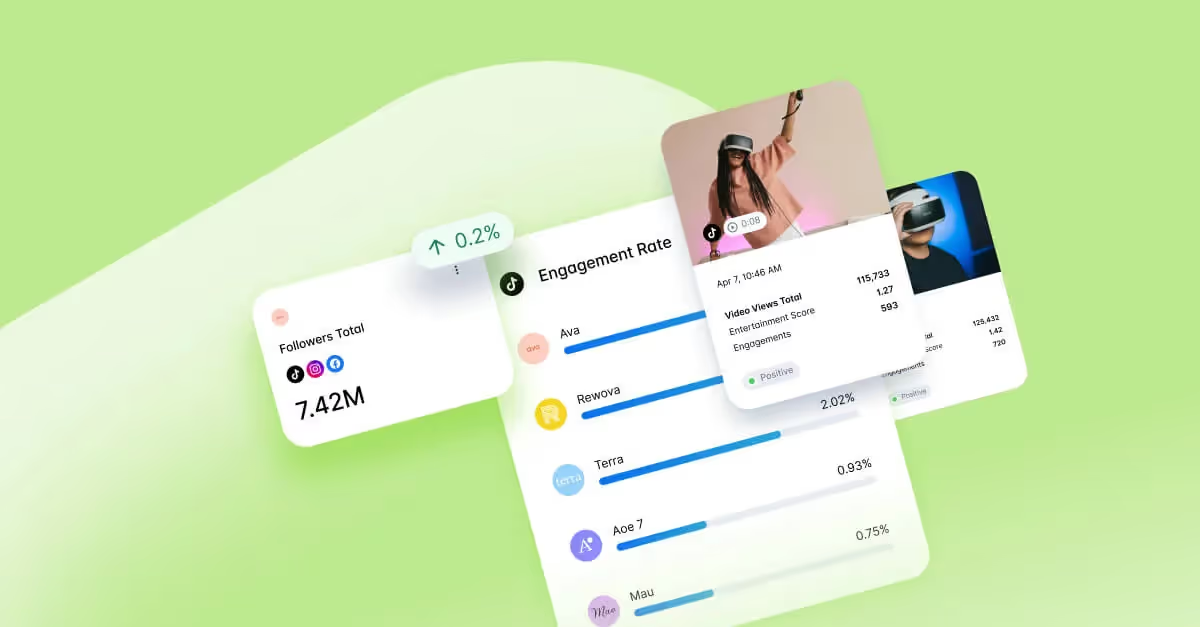Sports Marketing Tips and Strategies for Social Media

Sports marketing is huge, and social media’s shift towards entertainment will only make it bigger. Audiences now use social channels to seek inspiration and joy, and leading sports networks, fitness magazines, and activewear retailers are highly active online, never wasting a moment to engage with their communities. Check out the following benchmarks to see where your brand ranks, and sports marketing examples to help refine your strategy heading into your next social media play.
What is Sports Marketing?
Sports marketing is a category of marketing that focuses primarily on athletics and sporting events to market a product or service. The global sports industry is colossal, with countless athletic activities that serve as industries of their own. Sports fans can be found in every corner of the Internet, and they are highly motivated to engage with content around their favorite professional sports teams, favorite athletes, and favorite sports organizations.
What is the Role of Social Media in Sports Marketing?
Audiences are increasingly using social media to keep up with sports in real-time, including watching live games on YouTube TV, and using social media platforms to comment on sports as they are happening.
Social media’s ability to connect brands with enthusiasts for every niche is crucial for the sports industry, especially as channels like Instagram have 2 billion monthly active users that are focusing on real-time trends, discoverability, and transient content. Surfaces like Reels and Stories lend themselves well to the fast pace of sports.
Currently, the best sports brands are capitalizing on easily shareable sports content, which is evident in the insights in Dash Social's industry benchmark data. Brands share an average of 20 posts a week on Instagram, which is much higher than most other industries, and showcases how quick and agile—much like the athletes themselves—sports marketers have to be to engage with fans and keep audiences engaged, too.
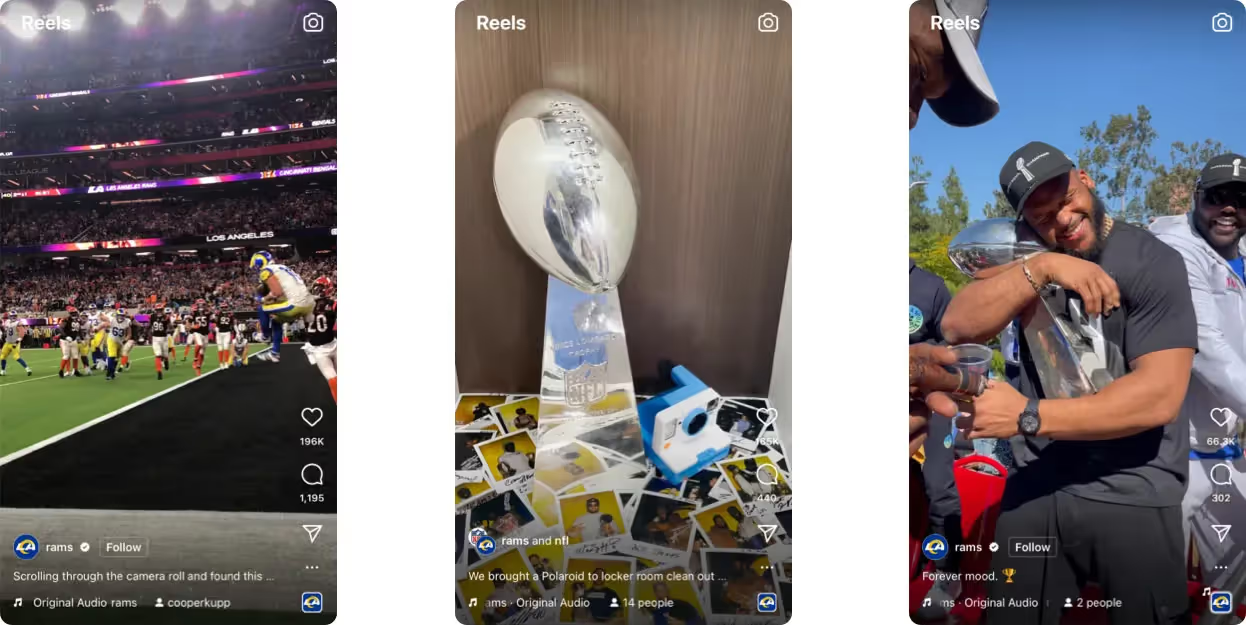
Sports Marketing Instagram Benchmarks
Our benchmarks take an average of the performance of some of the top sports Instagram accounts in the world. These social media insights will help you to understand your current numbers, guide your strategy, and develop KPIs as your brand navigates the era of social entertainment.
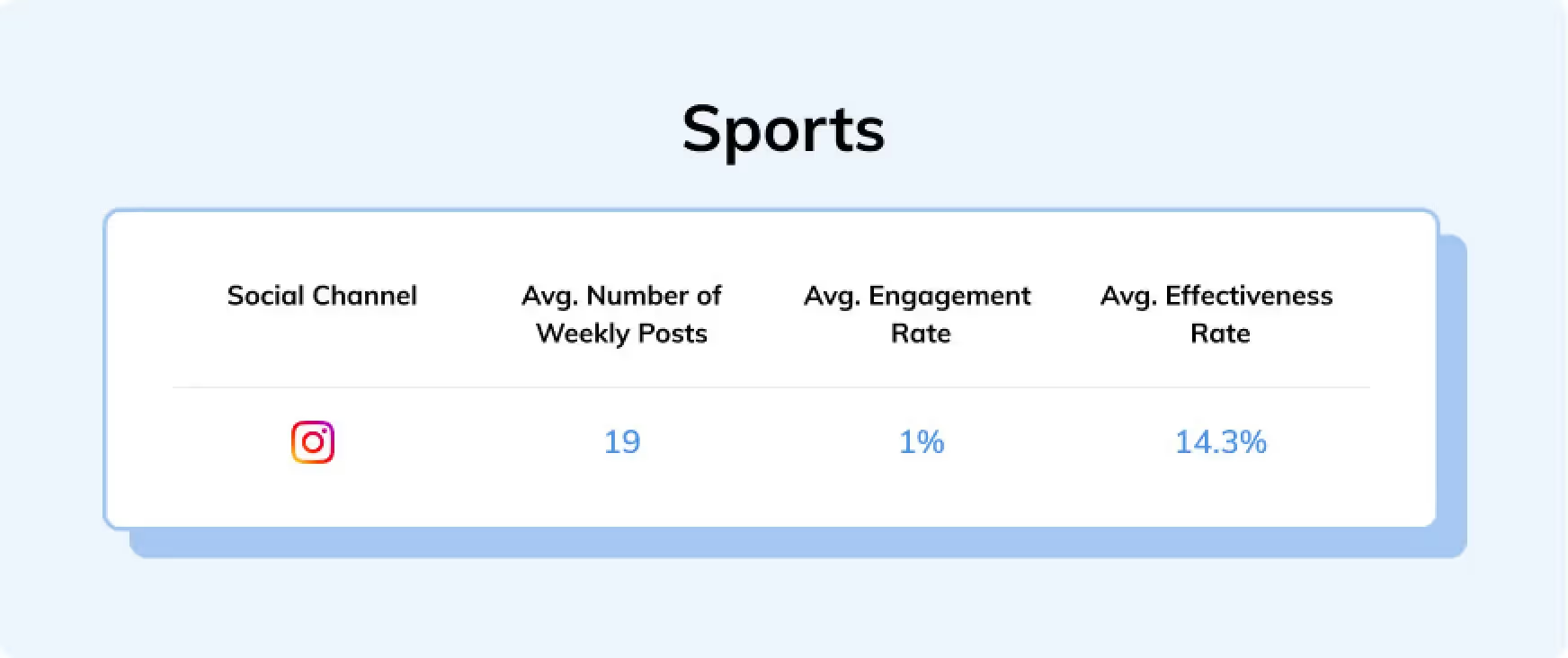
Marketing Strategies for Sports
1. Sports memes
Memes are a great way for brands to bring levity to their social feeds. Memes get high engagement from superfans, and they have an inside joke aspect that can be rewarding for brands focused on enthusiast industries like sports. Instagram is moving away from carefully curated aesthetics, and sports brands have long embraced putting entertainment first and foremost.
2. Live updates on social media
Social media turns watching sports into an interactive experience, where fans are able to react to events in real-time. There are many ways that brands can incorporate live updates into their social channels, including making it a part of their Twitter marketing strategy, or showcasing live highlights using Instagram Stories.
For brands that are more product-oriented, keeping up with trending events is still an important part of getting your brand on people’s timelines, particularly if it aligns with your sponsorship deals. The average sports brand makes 20 posts on Instagram per week, which is a lot more than most industries, and indicates that brands are putting in work to post relevant content throughout the day.

3. Fun TikTok and Reels content
Instagram is an important destination for sports fans, but TikTok is also emerging as a channel for sports fans to congregate. It was a key channel for fans of the Olympics, where athletes shared sides of themselves that simply were not able to be captured on television. TikTok is up close and personal, which makes sports even more immersive.
Athletics lend themselves well to content in motion, and sports brands do incredibly well with video content, as indicated by their high average effectiveness rate on Instagram. The emergence of social entertainment is spearheaded by the shift towards video content, and this industry in particular is in a position to define the social entertainment era by posting behind-the-scenes content, closeup views of games, and lighthearted content that taps into the latest TikTok trends.
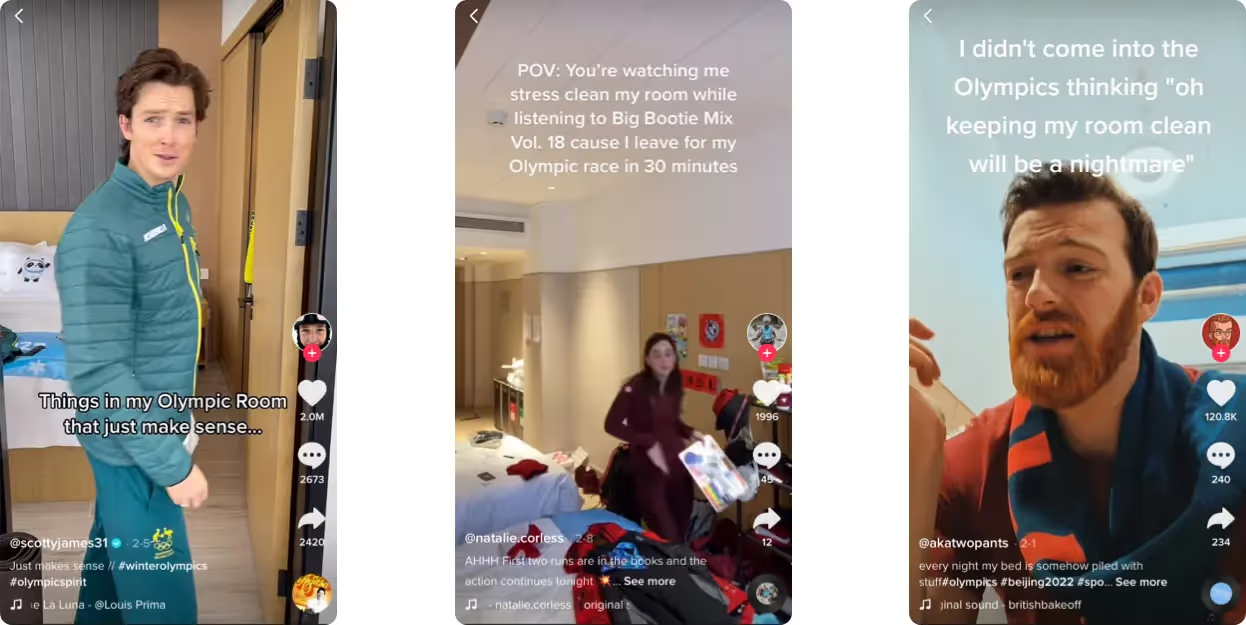
4. Giving back to the community
Many major sports teams are based out of specific regions, and they recognize their local roots through community initiatives, donating to charities, or celebrating their local fan bases. Social media accounts often cast a wide net in their content, but sports teams are also using their feeds to speak directly to their fans at home.
5. Bringing awareness to social causes
Besides philanthropy, many sports brands are now using their social media channels to advocate for a more inclusive world. A love for sports is something that transcends all differences, and sports marketers recognize the role that they play in advancing social causes. Gen Z in particular is highly driven by social causes, and they have an expectation that their favorite teams and brands will speak on important matters when it makes sense to do so.
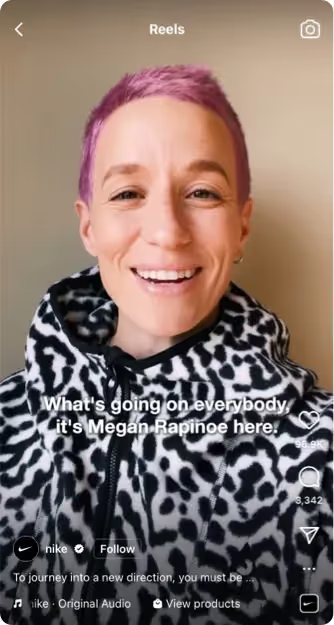
The Future of Sports Marketing on Social Media
Social media is moving faster than ever before, and sports brands have the momentum to keep up. The coming years in social media will be defined by entertainment becoming the primary motivator for audiences to scroll through their feeds, and sports marketers will be leveraging more of their unique content in order to stand out, and make their feeds a must-follow destination. Content will revolve more around algorithms that are specific to each individual user (the Instagram explore page, and TikTok “For You” page), and sports marketers will use their unique lens to capitalize on emerging trends to get their brands in front of more users.

Many of the top brands in the world are using Dash Social's insights and social media management tools to elevate their strategies and unlock their creative potential in the era of social entertainment. Learn more about how Hulu grew its engagement rate by 40.3% using Dash Social.
FAQs
How is sports marketing different from general marketing?
Sports marketing differs from general marketing in that its prime focus is on athletic goods and activities. Many of the central marketing tactics remain the same, however, there are specific attributes to the sports industry that marketers should be aware of, that are explored in Dash Social's Instagram benchmarks.
What are examples of sports marketing?
Sports marketing can include marketing events, products, or athletic endorsements. While “sports” in this case can refer to organized sports, it can also refer to any athletic marketing program, including fitness magazines or athletic wear. The sports industry is massive, and many brands are a part of it.
What is the biggest advantage of sports marketing?
The biggest advantage of sports marketing is how popular athletics are. Marketing is all about inspiring purchasing intent, and sports inherently energize those who participate or observe. Marketers are in a good position to create winning content by focusing on what entertains their audience.
What is eSports marketing?
eSports stands for electronic sports, meaning competitive video games. Although the action takes place on a screen, they are no less competitive, and eSports leagues are organized similar to physical sporting events. As eSports fans skew younger, marketers are spending a lot of time selling products to this demographic through team sponsorships, ads, and product placements.
.avif)




